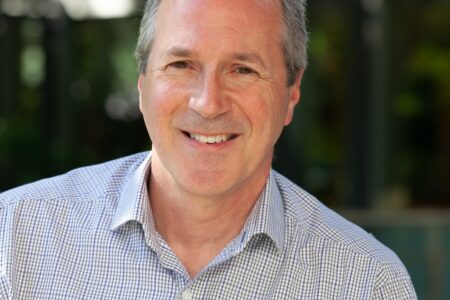Compassion and love are never irrelevant
And the time is flying, seven candles burning low.
It’s the new world rising from the shackles of the old.
If we could — just — join hands… — Led Zepplin, The Rover
When I wrote my last column, Brazil was not in the news; Turkey most definitely was. Now Brazil has become the latest nation where hordes of people are on the streets saying they want deep change. Their enemy (vaguely): “Government”. Issues are poverty and wealth, corruption, lack of democracy and of human rights, and societal feeling it’s time to make political noise, of protest, of saying NO.
Perhaps by the time you read this, yet another nation is experiencing street protests and authorities are in a dilemma how to respond. Could it happen here?
How could one not think about the Occupy movement, “Idle No More” and G8-Summit riots, all of which happen in rich nations where our economic and political issues were supposed to be unlike those in developing economies? How not think of European peoples (Greeks, Spanish, Italians) also protesting?
Having made a lightning survey of global political turbulence, one might go on quickly to ecological events, volatile weather (US midwest, Ontario), huge wildfires (Colorado) flooding (Alberta, Romania, India), ice-caps melting (Greenland), species extinction (Amazonia). One is compelled to connect the dots.
So back to a topic dear to me, the possibility of a collective human consciousness linking us in a single global noos, or hive-overmind, generated by world crises.
Readers of this column know that I hold the study of History in high regard, as an instrument of understanding our human condition and as a method of self-shaping one’s consciousness to adapt to changed conditions.
I want to argue a thesis that this time in our history is unique — but still, similar enough to other eras that there are clues from history as to what might be our futures. It will not lead us by example. It will remind us of humanity’s fragility.
This is a time when perceptive and sensitive humans know, with a sense that is not intellectual merely but spiritual, that we are on perilous thresholds. “Knowing” fails, but feeling and subconscious intuition succeeds, for comprehending now.
A mass sense of decay was abroad in part of the world when the Roman Empire was deteriorating; a new spiritual message was being propagated in the form of Christianity by a peculiar developing network called The Church. (Greek ecclesia, assembly.) The sense of dread, that human fate was retrograde, is evidenced in contemporary writing.
Rome’s order of society, politics, economy, was moribund, culminating in its end in the West and a Dark Age of underdevelopment. Christianity was the internet of its age, linking educated minds — but only a few minds. The Celtic Church was absolutely essential to save a fraction of the light as barbarism descended on Europe.
Another time when a sense of both decay and exciting possibility occurred when medieval Europe evolved into modernity, in the wake of the Black Death and loss of Greek-Orthodox Christianity as Muslim Turks overran imperial territory. After 1450, under the stimulus of the Italian Renaissance propagated with the new technology for printing, Europe entered a period of growth by the “discovery” of the New World. The Scientific Revolution crowned the maturity of this era.
The Chinese also have had periods of decay followed by a renaissance. New dynasties succeeded, during warfare and natural disasters, to assume the “mandate of heaven” — perhaps none more deeply felt than when the Mongols, profoundly disliked as inferior aliens, conquered China. After the Mongol emperors were overthrown, China sent out fleets to the west. The Chinese mind holds continuity is stronger than change; Taoism and Confucianism enable that idea.
We feel it today, this unease of standing where several paths lead onward. We passed a fork in our road about 1990 when it was possible, if we changed our economic and technological practices, not to alter our climate. From here on we have new choices, but the climate will change and we can’t stop it. Managing human populations, and the division of wealth from poverty, face us urgently.
We might simplify our paths thus: (1) more technology and materialism save part of humanity; rich nations already have a “head start” and will keep a lead, but the widespread sharing of affluence there, among a broad middle class, will decline.
(2) a backward-moving no-growth plan for all, to the simpler economies and much smaller populations of former times, will empower global equality and ecology. But plans need sustained will, and this is the weakness of this option.
(3) a world in two tiers: elite humanity pursues #1; a majority is forced by circumstance to marginal conditions of #2 and a “die-back” of human numbers.
I have just been reading the thoughts of William Irwin Thompson on this subject of projecting futures. WIT (Google him; read whatever you find in Wild River Review) has been walking a unique path all his life as a public intellectual, trying to get a grasp of how consciousness is changed, and how nature and culture are not separate but integrated in humans. I am in awe of his depth, his erudition, and his ability not to feel depressed by the weight of his understanding what peril we find ourselves in at this time. Personally, our prospects drag my spirits down.
Charles Eisenstein is another writer I much admire, and he is about to release his latest book on the subject of “how to build the more beautiful world our hearts tell us is possible.” I emailed him and discovered that he had never heard of WIT; that fact is a pointer to the complexity of our times. Both men live and write in America on the same topics, yet the younger man (Eisenstein) has not come across the work of the elder. The world noos still has significant blank synapses.
Eisenstein, for me, is a puzzle. He is clear about our past and present and his linear layout of the manner in which humanity got to this threshold of danger is lucid. He understands the historical working of money and debt, material power and human ego. Eisenstein sees deeply into “the narrative” of human Control over, and Separation from, the world outside a constructed Ego. He knows a better world can be imagined and even has concrete examples from all over the planet that illustrate positive alternatives.
[Read his essays at www.realitysandwich.com.]
In my understanding, Eisenstein is sketching a cartoon of three panels. Panel One, the present and its historic origins. Panel Three, the future, better, more-beautiful world. Two? A blank. That is the place and time where we’re in transition. He knows nothing for sure. No one does. Thompson is best when ambiguity is strongest.
I hold hard to the faith that one person makes a difference. What I do, what you do, is material for “Panel Two”. Compassion and love are never irrelevant. Not knowing that one “matters,” or makes things better, is no reason to withdraw from the struggle.
Charles Jeanes is a Nelson-based writer. The previous edition of Arc of the Cognizant can be found here.


























Comments